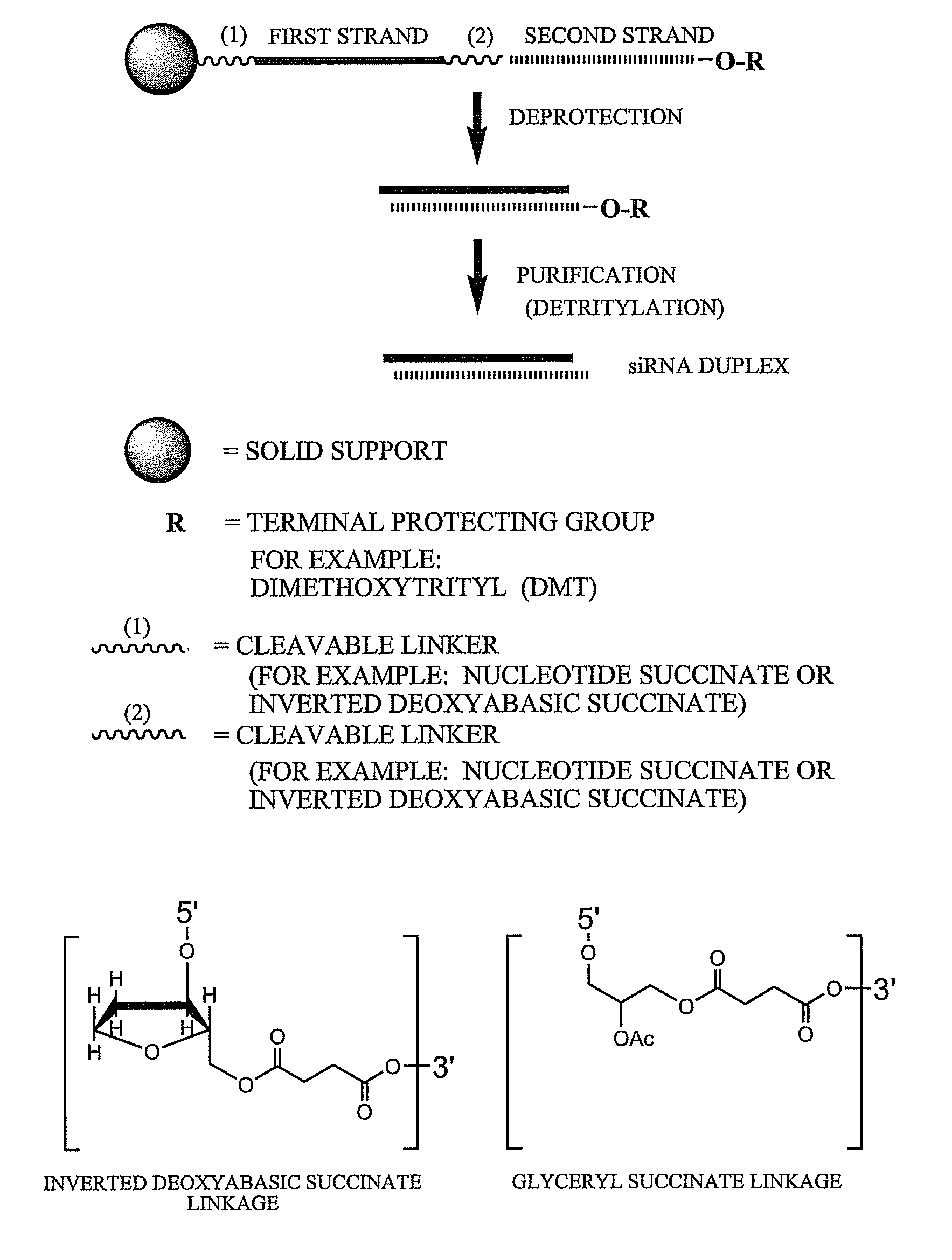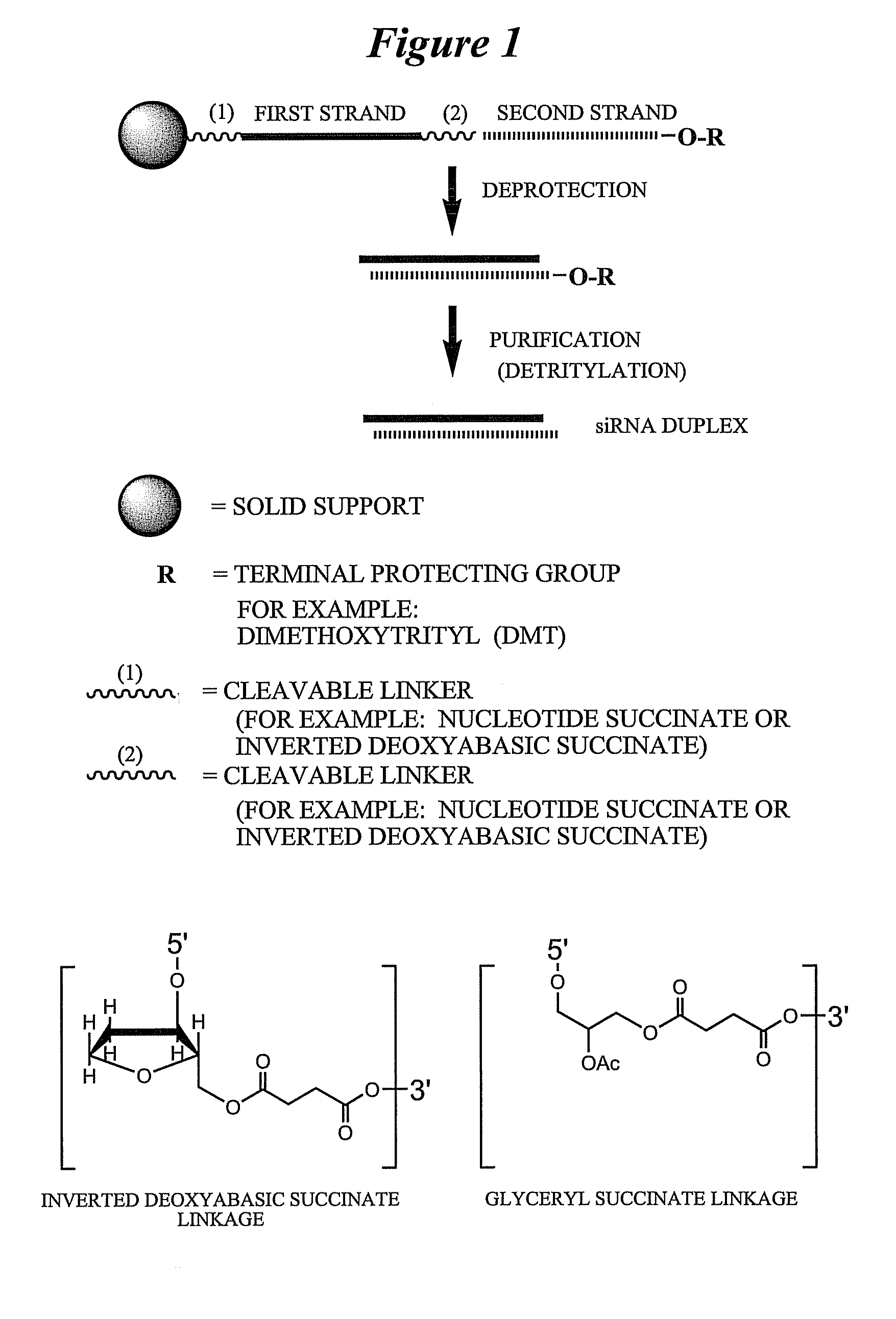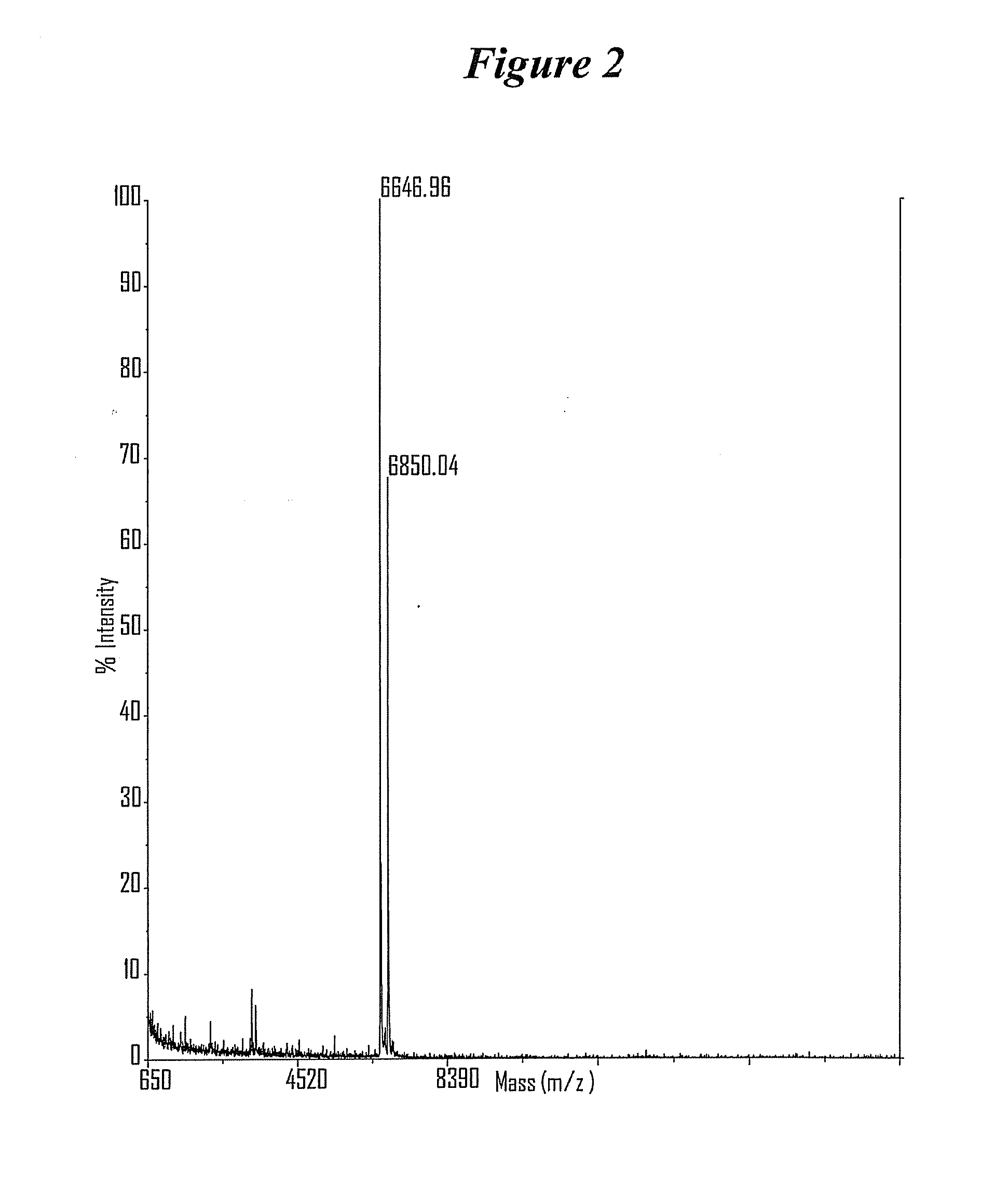RNA Interference Mediated Inhibition of Cyclic Nucleotide Type 4 Phosphodiesterase (PDE4B) Gene Expression Using Short Interfering Nucleic Acid (siNA)
a technology of cyclic nucleotide type 4 and interfering nucleic acid, which is applied in the field of double stranded nucleic acid molecules, can solve the problems that the interference activity cannot be assayed, and the modification of kreutzer et al. is similarly insufficient, so as to increase the stability of a sina molecul
- Summary
- Abstract
- Description
- Claims
- Application Information
AI Technical Summary
Benefits of technology
Problems solved by technology
Method used
Image
Examples
example 1
Tandem Synthesis of siNA Constructs
[0786]Exemplary siNA molecules of the invention are synthesized in tandem using a cleavable linker, for example, a succinyl-based linker. Tandem synthesis as described herein is followed by a one-step purification process that provides RNAi molecules in high yield. This approach is highly amenable to siNA synthesis in support of high throughput RNAi screening, and can be readily adapted to multi-column or multi-well synthesis platforms.
[0787]After completing a tandem synthesis of a siNA oligo and its complement in which the 5′-terminal dimethoxytrityl (5′-O-DMT) group remains intact (trityl on synthesis), the oligonucleotides are deprotected as described above. Following deprotection, the siNA sequence strands are allowed to spontaneously hybridize. This hybridization yields a duplex in which one strand has retained the 5′-O-DMT group while the complementary strand comprises a terminal 5′-hydroxyl. The newly formed duplex behaves as a single molecu...
example 2
Chemical Synthesis and Purification of siNA
[0791]siNA molecules can be designed to interact with various sites in the RNA message, for example, target sequences within the RNA sequences described herein. The sequence of one strand of the siNA molecule(s) is complementary to the target site sequences described above. The siNA molecules can be chemically synthesized using methods described herein. Inactive siNA molecules that are used as control sequences can be synthesized by scrambling the sequence of the siNA molecules such that it is not complementary to the target sequence. Generally, siNA constructs can by synthesized using solid phase oligonucleotide synthesis methods as described herein (see for example Usman et al., U.S. Pat. Nos. 5,804,683; 5,831,071; 5,998,203; 6,117,657; 6,353,098; 6,362,323; 6,437,117; 6,469,158; Scaringe et al., U.S. Pat. Nos. 6,111,086; 6,008,400; 6,111,086 all incorporated by reference herein in their entirety).
[0792]In a non-limiting example, RNA olig...
example 3
RNAi in Vitro Assay to Assess siNA Activity
[0824]An in vitro assay that recapitulates RNAi in a cell-free system is used to evaluate siNA constructs targeting RNA targets. The assay comprises the system described by Tuschl et al., 1999, Genes and Development, 13, 3191-3197 and Zamore et al., 2000, Cell, 101, 25-33 adapted for use with a target RNA. A Drosophila extract derived from syncytial blastoderm is used to reconstitute RNAi activity in vitro. Target RNA is generated via in vitro transcription from an appropriate target expressing plasmid using T7 RNA polymerase or via chemical synthesis as described herein. Sense and antisense siNA strands (for example 20 uM each) are annealed by incubation in buffer (such as 100 mM potassium acetate, 30 mM HEPES-KOH, pH 7.4, 2 mM magnesium acetate) for 1 minute at 90° C. followed by 1 hour at 37° C., then diluted in lysis buffer (for example 100 mM potassium acetate, 30 mM HEPES-KOH at pH 7.4, 2 mM magnesium acetate). Annealing can be monito...
PUM
| Property | Measurement | Unit |
|---|---|---|
| Fraction | aaaaa | aaaaa |
Abstract
Description
Claims
Application Information
 Login to View More
Login to View More - R&D
- Intellectual Property
- Life Sciences
- Materials
- Tech Scout
- Unparalleled Data Quality
- Higher Quality Content
- 60% Fewer Hallucinations
Browse by: Latest US Patents, China's latest patents, Technical Efficacy Thesaurus, Application Domain, Technology Topic, Popular Technical Reports.
© 2025 PatSnap. All rights reserved.Legal|Privacy policy|Modern Slavery Act Transparency Statement|Sitemap|About US| Contact US: help@patsnap.com



